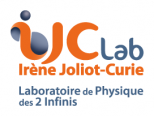Virgo detector characterization
The output of gravitational-wave detectors like Virgo is dominated by noise, with rare and weak additional gravitational-wave signals. Therefore, successfully detecting gravitational waves and exploiting the data to study the astrophysical sources that produced them, requires to lower as much as possible the noise of the instrument, to understand its variations and to control them — these activities are generically named “detector characterization”, or simply “DetChar”. The noise has multiple origins:
- Fundamental laws of physics that ultimately limit the sensitivity of the instrument;
- Technical noises due to imperfect hardware components or detector control systems;
- Finally, interactions between the detector and its environment (weather changes, ground motion variations, etc.).

Noise investigation
The detector characterization aims at understanding the way particular noises couple with the detector output. In some cases, auxiliary channels monitoring the evolution of noise sources help understanding the mechanism at stake — for instance a microphone detecting the passing of an airplane near a building hosting some of the Virgo detector components.
Another experimental way to find the origin of a noise feature consists in exciting it artificially — for instance by shaking a piece of hardware whose vibrations are thought to impact the sensibility of the instrument.
All these studies are complicated by the number of degrees of freedom involved and the many channels available to look for correlations in the time domain or coherence in the frequency domain. They require sophisticated analysis methods that usually scan all available data, looking for a lead in the ongoing investigation. And this is basically a never ending story: usually, when a noise source has been found and fixed or mitigated, other noise sources — previously subdominant and hence covered by the dominant one — show up and need to be taken care of as well.
Data quality
When the detector is running for long periods (up to one year or more), it is essential to monitor the quality of the recorded data, to make sure that it remains good enough for physics studies and to be able to take action quickly, should a problem be detected.
Data quality is scrutinized at three main steps of the processing that starts with the raw data readout from the instrument and ends with the final results of the data analysis.
- First in real-time, to assess the quality of the data that the fastest searches use to look for transient gravitational-wave signals live.
- Then, with a latency of a few tens of minutes at most, to vet the quality of the significant gravitational-wave candidates that the transient searches may have identified at the step described above. If the quality of the data is good and if no other problem is identified, a confirmed public alert is issued to follow-up the event through other channels (telescopes or particle detectors), and look for potential counterparts.
- Finally offline, up to months after the data have been recorded: the goals are then to vet the final set of gravitational-wave candidates and to define accurately the boundaries of the dataset that the analysis should all use.
In all three steps, dedicated software tools are key to fulfill their requirements.
DetChar activities at IJCLab
The IJCLab Gravitational-Wave group has been involved in DetChar activities for many years. Its range of expertise includes:
- The detection of noise transients in real time.
- The production of vetoes to remove periods of bad data (both in real time and offline for the final analysis).
- The vetting of gravitational-wave public alert candidates.
- The identification of the recorded data channels that are (un)sensitive to the passing of a gravitational wave through the detector, etc.
- Over the years, several IJCLab members have been coordinating the Virgo DetChar group.









